Anatomy of a 21st century recording studio: how Real World is adapting and thriving in a harsh recording climate
If you think recording studios are a dying breed, then you might want to think again

Over the last couple of decades, most recording studios have already had the big wake up call: to diversify or die.
The idyllic Real World Studios in Box near Bath, UK – created by Peter Gabriel in the late 1980s – actually took on this mantra pretty much from the start, and began as a three-pronged operation with the studio running alongside Real World Records and the hugely popular live event, WOMAD.
But over the last few years, as recording budgets have been squeezed, the studio has had to become even more innovative, adding a number of diverse activities to its operation: from education to remix competitions, intimate gigs to virtual mixing. It has also become something of a studio hub, with half a dozen satellite recording and mixing rooms surrounding the main Big Room and Wood Room studios.
Producers and engineers including Ali Staton (Madonna, Seal, Turin Brakes) and Cameron Jenkins (The Verve, John Cale, The Charlatans, Everything But The Girl) have taken up residency, bringing a co-operative approach to west country recording in the UK.
The Big Room studio is also large enough to be a great place for gear launches, with Audio Technica and Universal Audio among the big names who've used it.
The main Big Room studio is also large enough to be a great place for corporate gear launches, with Audio Technica and Universal Audio among the big name companies who have made use of this stunning building.
There have also been live gigs held at the studio with names like Ethan Johns, Big Big Train and Les Amazones d'Afrique offering intimate sessions for devoted fans. And over the last few years, education has also played a significant role in the studio operation, as Head Engineer Oli Jacobs details.
“We do a lot of student-led projects here and probably have between eight and ten regular universities and institutions – from local Bath colleges to Berklee College of Music in the US – that come every year.
Want all the hottest music and gear news, reviews, deals, features and more, direct to your inbox? Sign up here.
"It works really well because you can get a lot of people in the Big Room and then a band in the Wood Room, so a lot of people can participate in what is effectively a hands-on studio training session.”
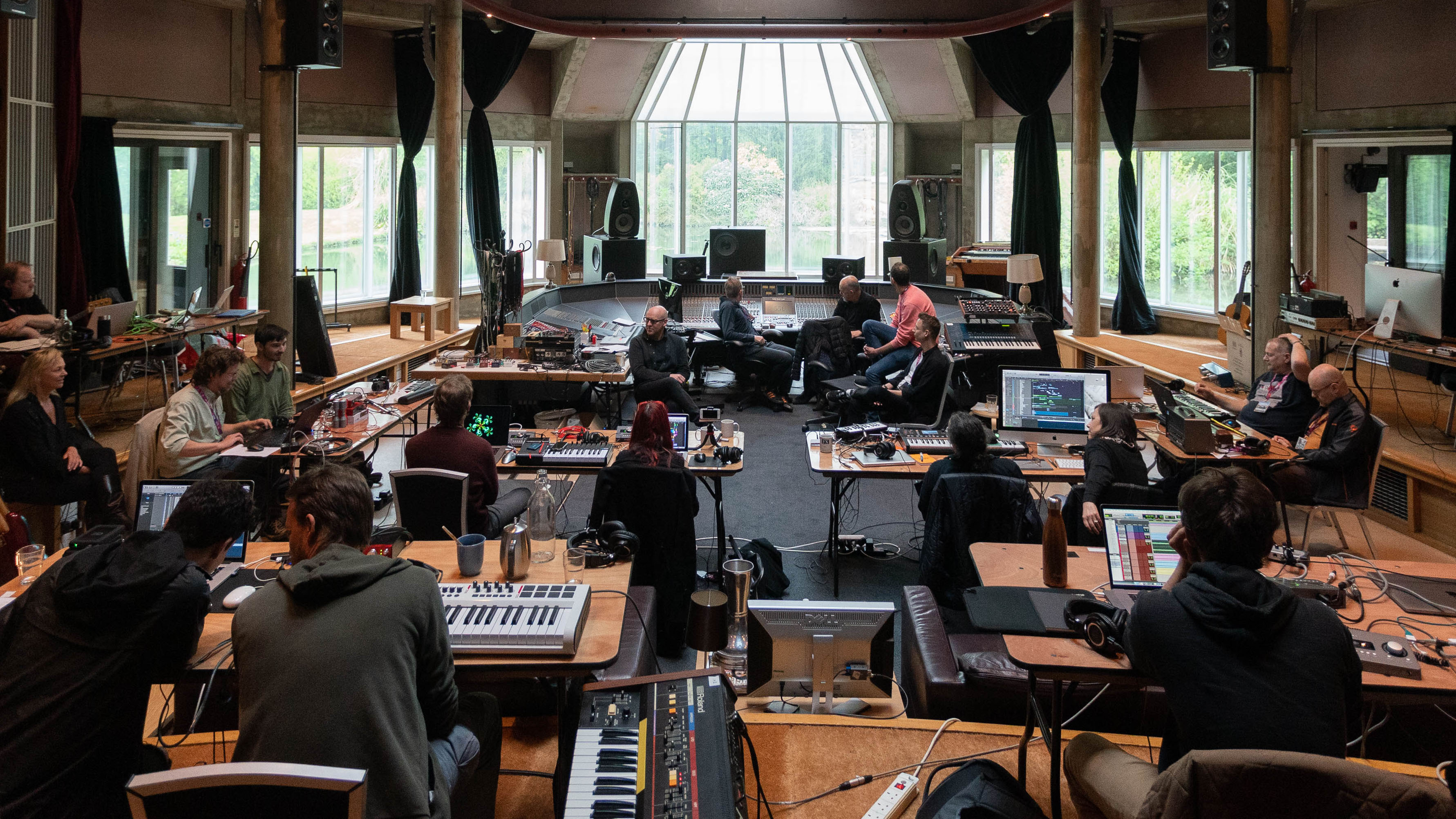
More innovation
It's kind of an accelerated learning – zero to complete thing in three days!
Head Engineer Oli Jacobs
eMixing is another very 21st century addition to Real World's portfolio, a way to get your tracks mixed at one of the best facilities in the world and by a top recording engineer. You can opt for anything from a monitor mix to full-on tweaked master, paying from £120 for each track.
Then there's the more hands-on experience of Producer Camp where you get to spend time with fellow producers at the studio and get to use all of the facilities Real World has to offer.
“It's a two- or three-day residential session where people come and stay and record a song at the studio,” says Senior Consulting Engineer Tim Oliver.
“They get paired up and collaborate as producers and work in the Big Room with all the gear, and with a variety of session musicians, established guest producers and technicians. Over the weekend each pair of producers creates a song which gets published and released the following week.”
“It's a really positive weekend, the fact that you can stay here and get the Real World experience,” Oli adds. “They get to meet and work with a lot of other people and with great musicians rather than samples so, for example, we have the Wood Room set up with an amazing drum kit, drummer and engineer. It's kind of an accelerated learning – zero to complete thing in three days!”
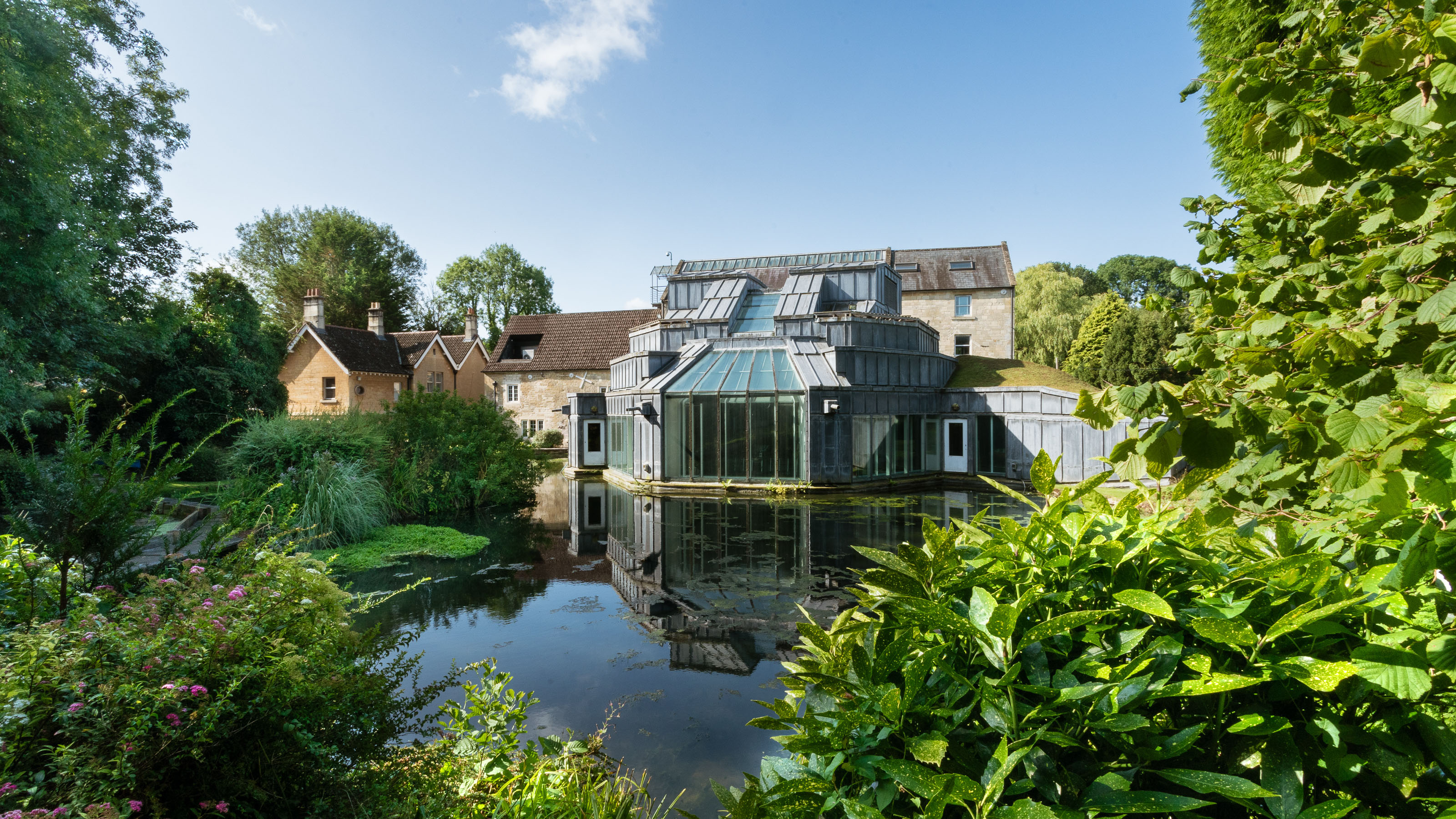
Crisis? What crisis?
So while the recording sessions at Real World remain an important part of its income, diversification is something that has become second nature to it over the last four decades. It's perhaps not surprising, then, that the facility has been quick to adapt to the challenges brought with the Coronavirus crisis.
Real World is developing new ways in which we might well be recording and enjoying music well beyond the crisis.
Indeed, Real World is developing new ways in which we might well be recording and enjoying music well beyond the crisis, with remote mixing being just one of the new options on offer.
“We've been lucky in that we have been able to use the studio one person at a time,” Oli explains. “We were pretty quick to figure out how to have people virtually 'attend' sessions, being able to hear what we're doing straight away and in high quality, and to be able to feed back to us.
"We now have the remote mixing experience as good as you can get it, without the person being sat next to you, with a combination of Zoom or Google Meet for the communication and using Audiomovers for the hi-res audio transfer.
"We have also built a system that auto-mutes the talkback so either party doesn't hear the audio repeated.”
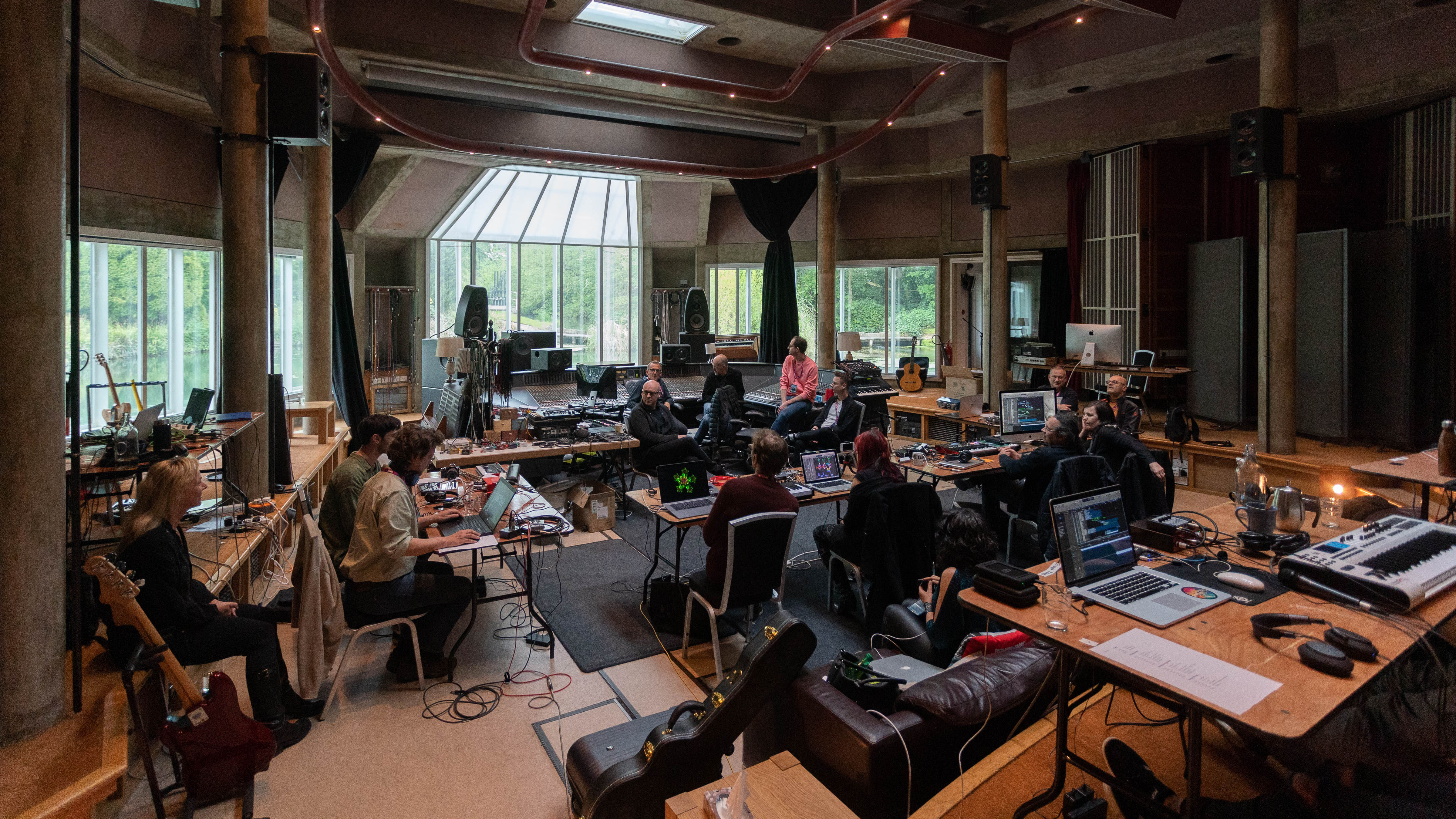
UnReal World
An extension of all of these innovations is the studio's latest development: UnReal World, a 'virtual studio' as Tim explains.
“There are a lot of collaboration ideas around at the moment but they tend to be fairly chaotic as they are musician led, whereas the idea of UnReal World is that it is producer led.
"There is a virtual studio with the producer at the helm of that studio, with the seed of an idea, a style brief and a playlist of references. They then ask musicians to download their audio stem ideas, play along and add something and then upload their ideas along the lines of what the producer has called for; so maybe they have said, 'I need some weird synth stuff on this track, give me some ideas'. The producer then stems out what they like, and then that evolves into something else.”
“We're trialling it with the producer John Reynolds,” Tim continues. “There are two tracks: a drum track where he is adding layer upon layer and another which is a Damien Dempsey acoustic guitar and voice.
"We're testing the water to see if there's any merit in the idea and to see if it creates anything at the end which is musically valid.”
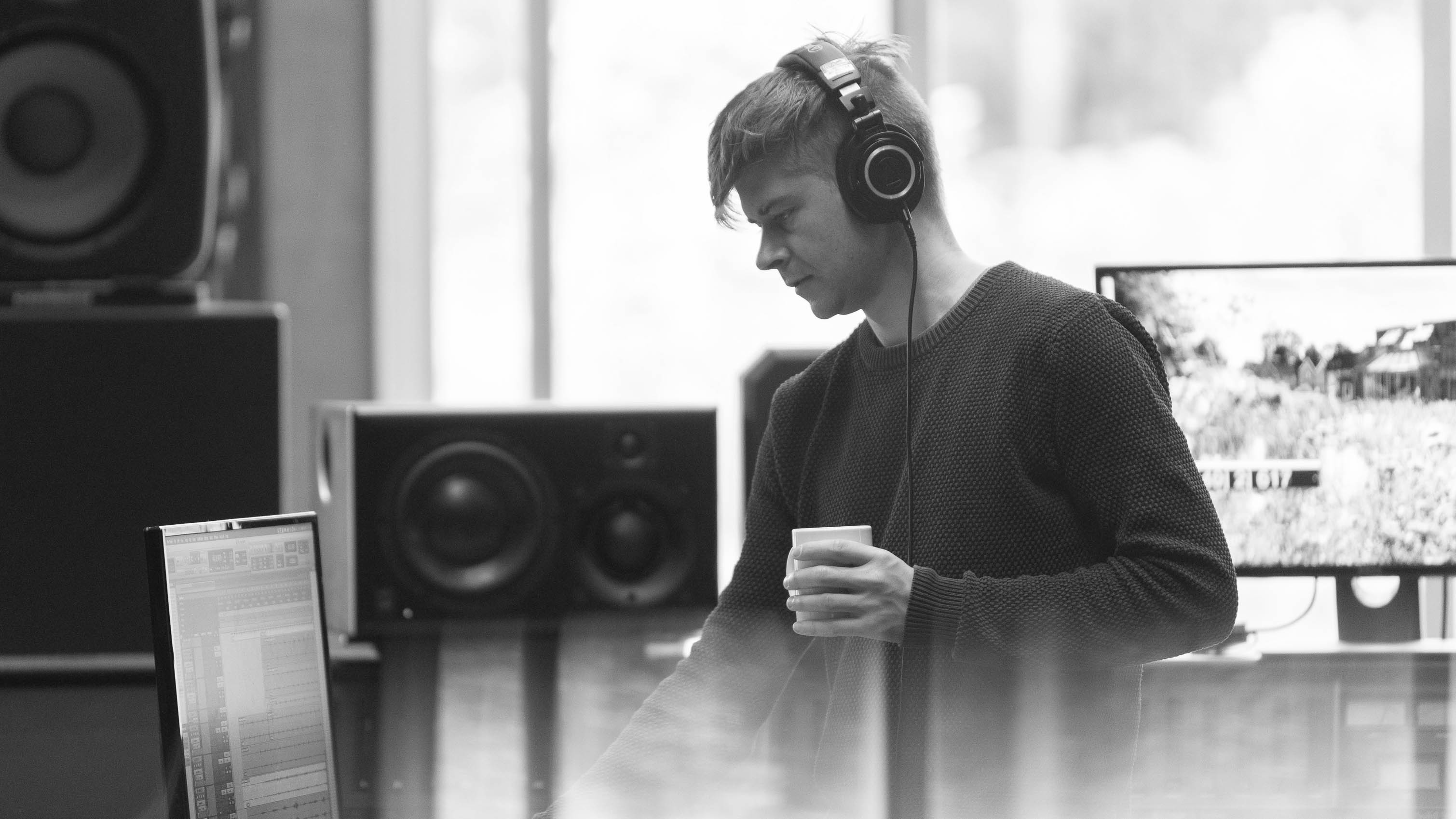
Immersion therapy
Finally we turn to the end product, the music itself, and perhaps the most exciting of Real World's new plans: immersive concerts where you get to enjoy live events on a more intimate level.
“We are aware that a lot of people are doing live streams right now,” Oli explains. “Some are great but some are pretty boring. We are producing a series of concerts that will be audio only, with the focus on really hi-res audio streaming, not video. We want to do something that is a lot better sounding than what is out there, not just another live stream.
"The performances will be pre-recorded and then mixed here binaurally; they will be immersive mixes, making the experience as close as possible to being in the live room. The idea is that you spend your whole day on Zoom or staring at email and then this is 'just put some headphones on, close your eyes and just listen as if you were there'.”
Because no-one can go out touring, they think 'well what can we do? Oh let's make a record!'
Senior Consulting Engineer Tim Oliver
“We're collaborating with a few institutions,” he adds, “like d&b audiotechnik who are a very important collaborator; we're also talking to Kings College London who are developing new surround sound plugin systems, and also the Bristol and Bath Expanded Performance creative cohort.
"We're still in the experimentation phase with all sorts of new ideas, like we may also eventually introduce an app so you can change where you are standing in the room or change where the instruments are around you.”
As you can see then, with so many innovations, it's not so much a case of adapt and survive, but adapt and thrive and Real World looks set to push the recording envelope. There are plans to develop further spaces, plus part of the site is set to be redeveloped into a media hub over the next few years with additional office space, producer rooms and a cafe. But let's not forget the reason the studio started in the first place, to make great records, and that picture is as rosy as ever.
“Actually it is looking really positive,” says Tim. “Because no-one can go out touring for the foreseeable, they think 'well what can we do? Oh let's make a record!' As a result, we’ve been getting many more enquiries than we expected.”
Oli concludes: “That's the one thing we have discovered during the lockdown is that no matter how great the technology gets to allow collaboration online, it’s ultimately a million miles away from the real thing. People are desperate to come into a studio together again, and there really is no substitute for musicians in a room together.”
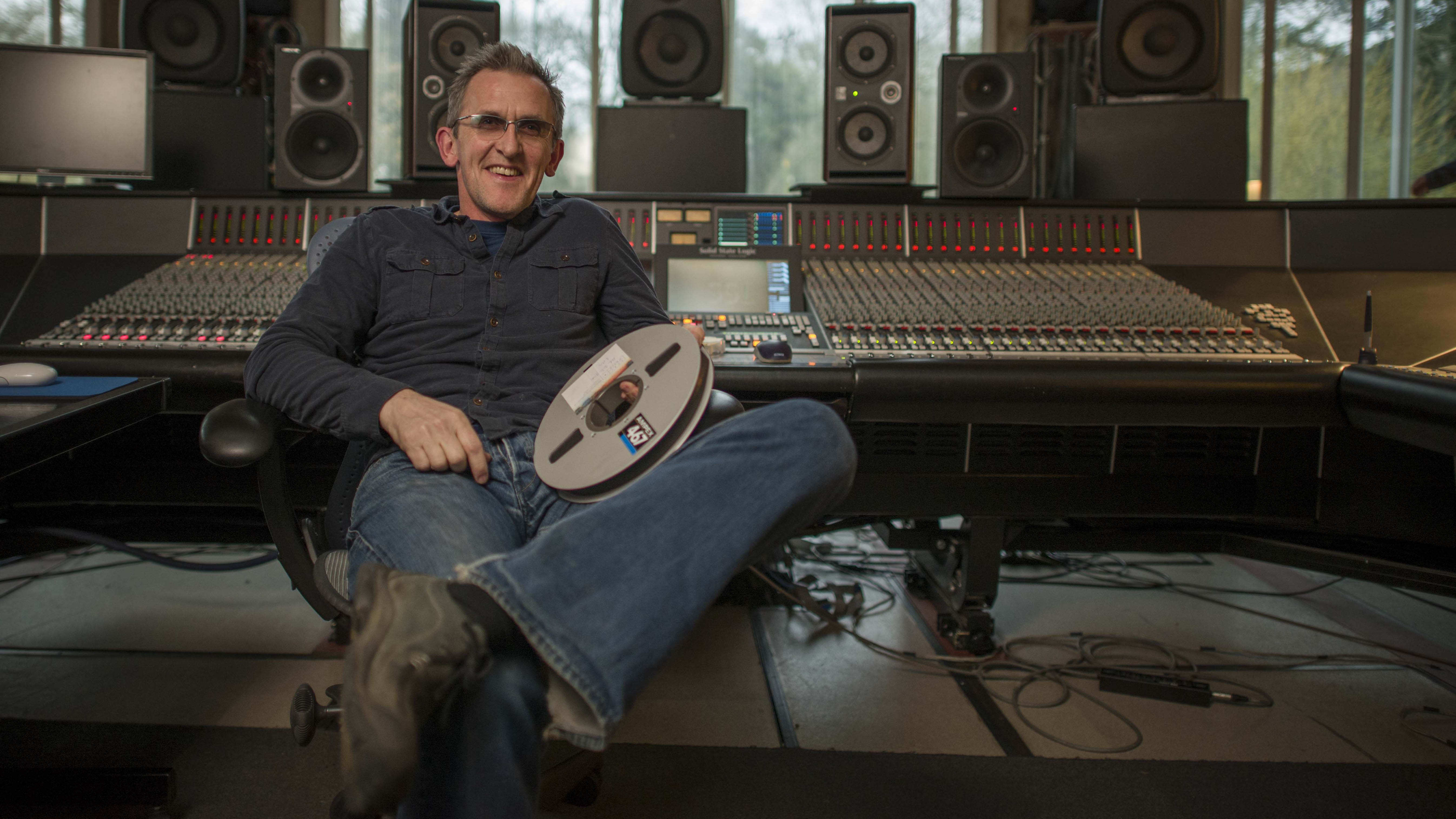
Andy has been writing about music production and technology for 30 years having started out on Music Technology magazine back in 1992. He has edited the magazines Future Music, Keyboard Review, MusicTech and Computer Music, which he helped launch back in 1998. He owns way too many synthesizers.
